---------------------------------------------------------
Every year, more and more people are opting to keep a small flock of hens in their backyard. Some do it to live a more sustainable life, some because they don’t want to support factory farms. Some want to be part of the local food movement. Regardless of the reason, there is an increasing desire to become more connected with your food.
Chickens are pretty low maintenance and can be kept in even a small urban backyard so they make a good first step in backyard farming. The romantic vision of chickens foraging and softly clucking in your yard can be pretty tempting. Unfortunately, too many people jump into backyard farming without doing the proper research. The sad truth is that hens start laying at around 5 months and will lay eggs fairly reliably until around their second or third year. They will continue to lay eggs after that, but with every passing year their production will decline drastically, and chickens can live for a decade.
Many towns are facing the growing problem of unwanted chickens being released into the wild or crowding animal shelters. Abandoned by people who no longer want to spend the time and money caring for hens not producing eggs. Having an aging hen or two around is not a big deal when you have two dozen birds, but when you have a small flock of 2-3 birds it can be a problem! So what to do with your aging chicken population?
Processing
The more pc way to say slaughtering, this is the option many homesteaders choose when egg production slows down. Hens are so versatile, while they live they provide you generously with eggs. They can also fill your stew pot. We eat chicken several times a week at our house, but I can’t bring myself to actually eat one of my chickens. If you know you are going to eventually eat your birds, it’s best not to name each bird, or think of them as pets. If right from the start they are livestock in your mind, it will make things easier. If you don’t have the stomach for doing the deed yourself, contact a local butcher or fellow chicken farmer to see if they can help you out.
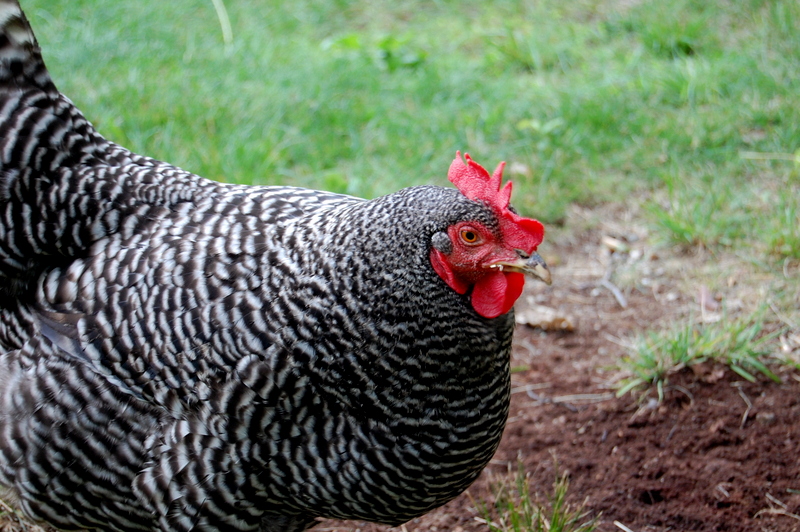
Old Folks Farm
If you don’t want to process your hens yourself, you can try contacting a local farm or fellow homesteader to see if they are interested in taking them off your hands. Some farms might be interested in retired hens for the compost or bug control. But know that most likely, they will be taking them to eat or to use their meat in animal feed. If you are not ok with that, this is probably not the option for you. Do not EVER just drop your old hens off at a farm without clearing it with the farmer first. Just because they are a farm doesn’t mean they have the space & resources to care for everyone’s aged hens.
This option is much better than simply releasing them in the wild. Hens have very few defensive skills, they do not see well in the dark, and there are so many predators that would love a chicken dinner. A chicken raised in captivity will likely not last more than a couple days on it’s own. At least a farmer trained in processing will do it in a humane, quick way and use the meat to feed their family or livestock.
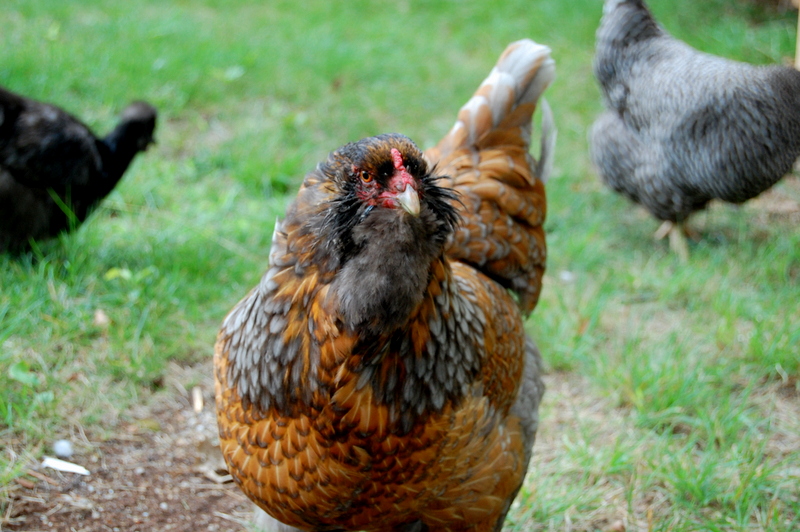
Living Out Their Natural Life
You have raised this helpless bird since it was a day old, you named it, nursed it through sickness, posted photos of her on Facebook….it’s no surprise many chicken owners are not able to eat their birds. So what is it like to have aging hens?
They may not be making you breakfast everyday anymore, but that doesn’t mean they are not a productive member of the flock! They can and will still lay eggs past the decade mark, it just might only be a few every month.
Old hens are excellent bug hunters. They know your yard and the best places to look for a good meal. And of course, they are still giving you plenty of rich compost for your garden. They are happy to help get rid of your excess food waste.
Your older girls will teach your younger girls about flock life. If you are able to increase your flock with younger chickens, you will find the older ladies will “train” the babies. My older girls have trained the younger ones to come back from free ranging when I rattle the food bin. They have shown the new birds to excitedly greet me when I come into the yard. Younger hens will learn by example how to build a nest, how to roost at night, how to interact as a flock member. I have found that senior hens are far from being pushed aside old ladies, even our rooster respects them!
A slower pace of life
Just like humans, your aging ladies will slow down. They will spend more time lounging in the sun than foraging in the woods, more time enjoying a leisurely dust bath than building the perfect nest. This can be a plus on the side of keeping aging hens. Anyone who has spent time relaxing in the yard watching their flock knows how entertaining chickens can be. The old girls aren’t foraging to the far corners of the yard, they stick much closer to home where it’s easier for you to enjoy them. They are more likely to hang out with you, or quietly sit on your lap…content to soak in the sunshine and leave the heavy digging to the young’uns.
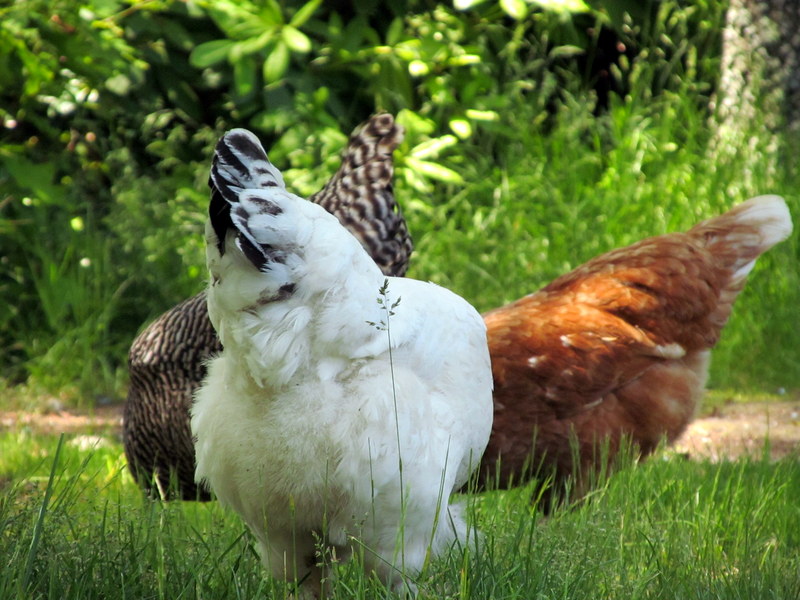
Challenges of keeping aging hens
First off, they don’t move as fast as they used to. Predator proofing is important to keep them safe. Supervising free ranging (or employing a rooster) is a good idea.
They might have problems reaching high roosts. Be sure you have a roost or two that is lower, or add a ladder to help them get up.
Two common diseases found in older chickens are Marek’s and lymphoid leukosis. Both can cause tumors and are generally fatal. Many chickens are vaccinated against Marek’s disease as chicks, but unfortunately, the vaccine wears off after a few years. As their organs fail, they can also be susceptible to water belly. Click here to read more about water belly
Their molting can take longer and be more stressful on them. The aging reproductive systems often suffer from complications as well. Their bodies want to still be producing eggs, but the factory is only open part time. Sometimes, this can result in odd or misshapen eggs or egg binding. Salpingitis is an infection in the oviduct that generally only effects hens over two years old. The symptoms of Salpingitis are hard to detect in it’s early, treatable stages so this is generally a fatal condition.
As you can see, while hens CAN live to 10, 12, possibly even 15 years that is a very rare exception. Just like humans CAN live to 115; diseases or accidents usually strike us down well before that. Realistically, you can expect a well cared for, well protected & lucky chicken to live 5-8 years in a backyard farm. What is the oldest chicken you have had?
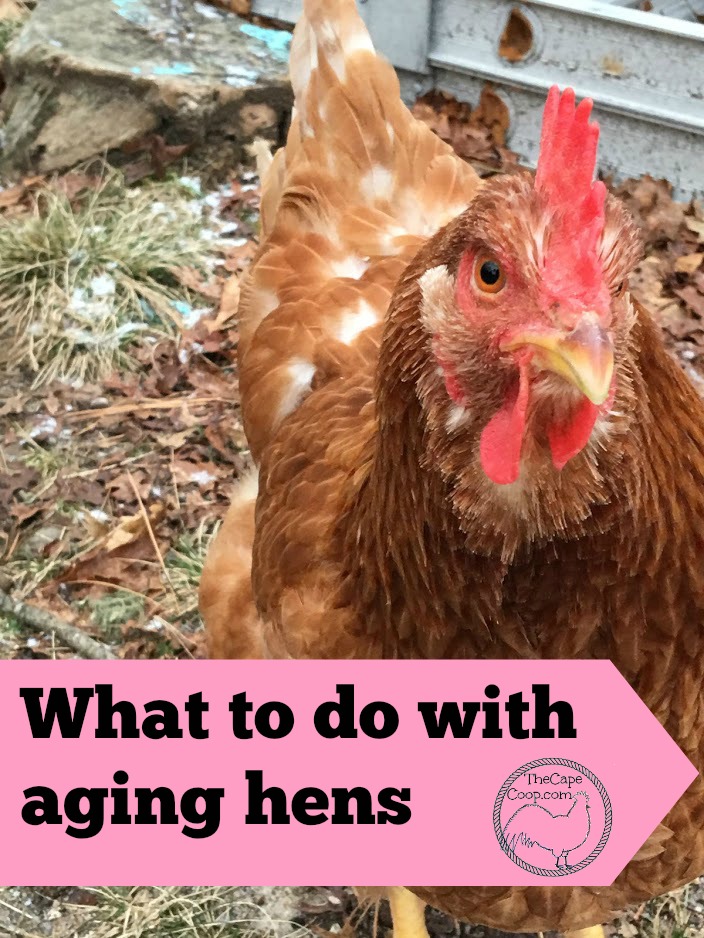

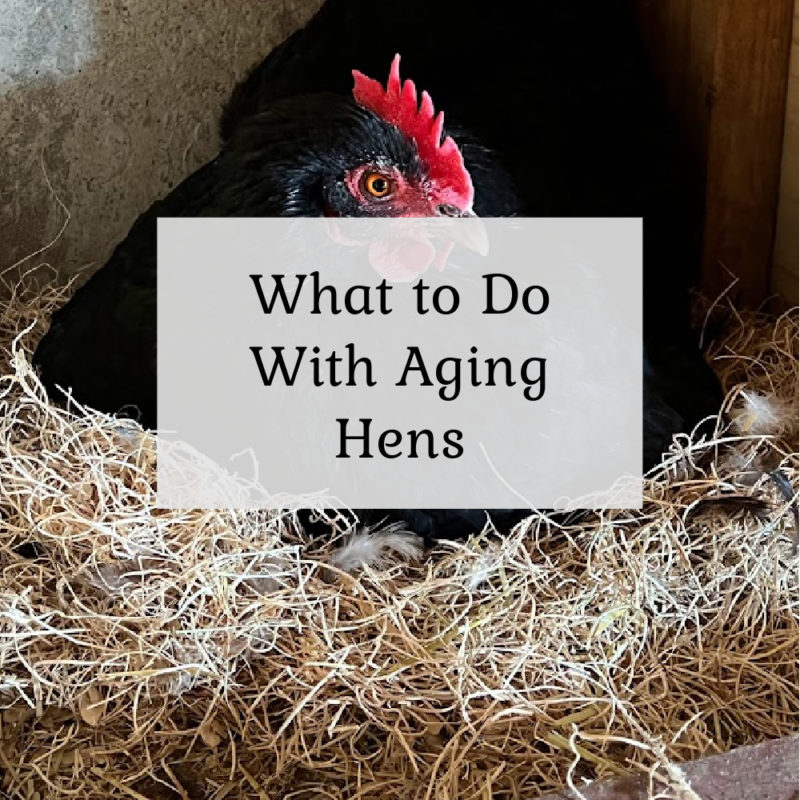




Geri Spieler
Monday 7th of November 2022
Would getting a couple more chickens spread out the stress?
Liz
Monday 7th of November 2022
Yes if you could get a few more hens then you could let the rooster live with them so he can have options with mating and doesn't just focus all his "love" to one lady. Chickens are flock animals and really feel safest in a group of at least three
Karyn
Monday 7th of November 2022
Out of a dozen chickens 5 years ago, I have 1 remaining rooster and 1 hen who have never lived together; their pens are next to each other. We live in Mid-Michigan with winter temperatures at night in teens but they each have nicely insulated coops. Should we keep them separate or house them together upcoming winter. She is still laying and we think attacked her last roommate over an egg. He wants to mate. I can see things go badly together.
Liz
Monday 7th of November 2022
that is definitely a tricky situation, it would really be ideal if they could live together, but the rooster is likely going to over mate the hen causing her to lose feathers and possibly get injured. And it sounds like she isn't afraid to stand up for herself so she could even instigate a fight with him. I think I would leave the situation as is with them separate, but as soon as you can you should look into getting some female friends for her
Glenda Wood
Wednesday 21st of September 2022
My arthritic girl, Granita, born in 2016, goes out the front door once in a while, for fresh air,. sunshine and maybe a dust bath. Then she comes to the front door and waits to be let in. At night he sleeps in her special place, atop a storage bin at the end of the couch. She has some little 'pet steps' so she can easily get into her Behren's indoor tub of shavings to relax and nap during the day...outdoor life? It's for the other birds! Roosting out in the pine woods? Heaven forfend!
Liz
Thursday 29th of September 2022
lol that is awesome! She is an old lady who knows just what she wants!
Beverly Burgess
Monday 19th of September 2022
My rescue girl is approximately 6 and recently started roosting in a pine woods area which is a distance from her coup that is shared by 3 other hens. She is mounting and slowing down. For the last 3 years she has waited at my back door where I pick her up carry her to the coup at roost time. Should I expect this change in her behavior as related to her aging?
Liz
Wednesday 21st of September 2022
I'm surprised she is ranging out and trying to roost far from the coop. As my girls get up to 6 or 7 years they do tend to stay closer to the coop and definitely slow down. I wonder if she wanders that far out during the day with the other chickens and then just doesn't feel like going all the way back.
Janet
Sunday 10th of July 2022
Hello, I have 5 chickens. Two are laying, I would love to know which are the oldest, as three go in early and two stay out till quite late. Would they be the young or the older. There are 3 years between the oldest and the layers but I can’t tell which are. Two still have beautiful clean legs, they are all very healthy and free range on a huge property
Liz
Wednesday 13th of July 2022
I have found my older ladies tend to return to the coop earlier in the evening and the younger ones stay out closer to dusk, so that is probably a good clue